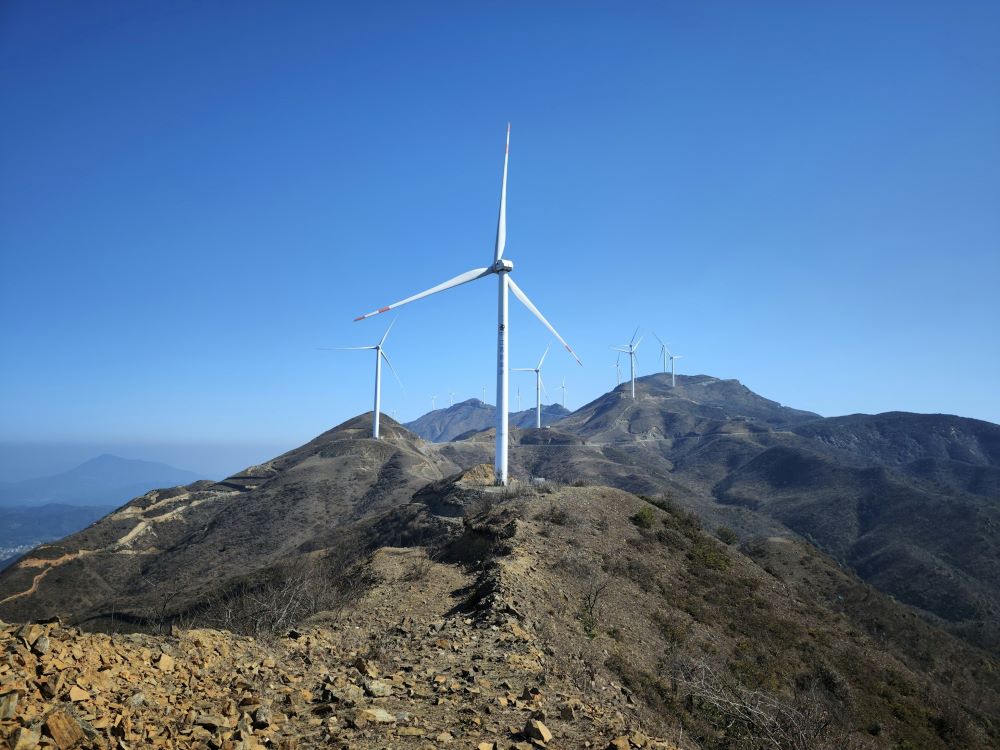Table of Contents
ToggleLet’s delve into China’s renewable energy industry, exploring its rapid growth, key initiatives, and future prospects.
In recent years, China has emerged as a global leader in renewable energy, making significant strides in harnessing clean and sustainable sources of power. With ambitious targets to reduce carbon emissions and combat climate change, the country is spearheading the transition towards a greener and more sustainable energy future.
The Growth Trajectory
China’s renewable energy industry has experienced exponential growth in recent years, driven by favourable government policies, technological advancements, and increasing environmental awareness. The country boasts the world’s largest installed capacity of renewable energy, including wind, solar, hydroelectric, and biomass power.
Wind Power
China leads the world in wind power capacity, with vast wind farms spanning its landscapes. The country’s wind power sector has witnessed remarkable expansion, driven by government incentives and investments in research and development. From the windswept plains of Inner Mongolia to the coastal regions of Jiangsu, wind turbines dot the skyline, harnessing clean energy to power homes and industries.

Solar Power
Solar energy has also experienced rapid growth in China, fueled by declining costs of photovoltaic technology and government support through subsidies and incentives. The country boasts the world’s largest solar photovoltaic capacity, with vast solar farms and rooftop installations proliferating across urban and rural areas. China’s commitment to solar energy extends beyond its borders, with the Belt and Road Initiative promoting solar power infrastructure development in partner countries.
Hydroelectric Power
China has long been a leader in hydroelectric power generation, harnessing the energy of its rivers to generate electricity. The iconic Three Gorges Dam on the Yangtze River stands as a testament to the country’s hydroelectric prowess, producing vast amounts of clean energy while mitigating floods and facilitating navigation. Hydroelectric power remains a cornerstone of China’s renewable energy portfolio, providing a reliable source of electricity to meet growing demand.
Biomass and Other Sources
In addition to wind, solar, and hydroelectric power, China is exploring innovative ways to utilise biomass, geothermal, and other renewable energy sources. Biomass energy, derived from organic materials such as agricultural residues and municipal waste, holds promise as a clean and sustainable alternative to fossil fuels. Geothermal energy, tapping into the heat beneath the earth’s surface, offers potential for heating, cooling, and electricity generation in regions rich in geothermal resources.
Read more: The Rise of Renewable Energy in Vietnam: Opportunities and Challenges

Government Initiatives and Policies for China’s Renewable Energy Industry
China’s renewable energy boom has been facilitated by proactive government policies aimed at promoting clean energy development and reducing carbon emissions. The country’s 13th Five-Year Plan outlined ambitious targets for renewable energy deployment, including increasing the share of non-fossil fuels in the energy mix and curbing coal consumption. The Renewable Energy Law, introduced in 2005 and revised in 2020, provides a legal framework to support renewable energy development, incentivize investment, and promote grid integration.
Read more: Japan’s Renewable Energy Sector: A Quick And Balanced Look On A Rising Industry
Future Prospects and Challenges
Looking ahead, China’s renewable energy industry faces both opportunities and challenges. Continued investment in research and development is essential to drive technological innovation and improve the efficiency and cost-effectiveness of renewable energy technologies. Grid integration and energy storage solutions are critical to overcoming intermittency issues and maximising the utilisation of renewable energy resources. Addressing environmental concerns, such as land use impacts and wildlife conservation, is also paramount to ensure sustainable development.
Read more: Exploring South Korea’s Renewable Energy Sector Powering A Vibrant Future

Conclusion
China’s renewable energy industry stands at the forefront of the global energy transition, demonstrating the country’s commitment to building a greener and more sustainable future. By harnessing the power of wind, solar, hydroelectric, and other renewable energy sources, China is reducing its reliance on fossil fuels, cutting carbon emissions, and paving the way towards a low-carbon economy. As the world grapples with the urgent challenges of climate change, China’s renewable energy journey serves as a beacon of hope and inspiration for nations around the globe.
Interested in expanding to China? With our over 15 years of experience serving the Asian market, Eos Global Expansion is ready to help. Our Employer of Record (EoR) services will take care of the administrative duties so you can focus on your core business. Check out our services here or contact us directly.







